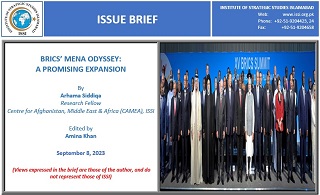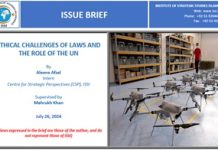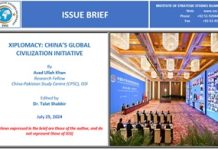The 15th meeting of the BRICS (an abbreviation representing Brazil, Russia, India, China, and South Africa) leaders, convened in Johannesburg on 22 August 2023, garnered substantial media attention, particularly due to its timing amidst the escalating conflict in Ukraine and the growing political and economic rivalry between the United States and China. Global news coverage predominantly centered on the inclusion of new members and the potential ramifications for the future direction of the BRICS collective, including its economic and geopolitical aspirations. On August 24, the BRICS grouping reached a consensus to expand its membership by extending invitations to six new countries namely; Saudi Arabia, the United Arab Emirates (UAE), Iran, Egypt, Ethiopia, and Argentina. Should they accept their invitations, Saudi Arabia, the UAE, Iran, and Egypt are poised to become the first nations from the Middle East and North Africa to join the BRICS alliance, with their formal inclusion anticipated as early as January 2024. The genesis of this grouping dates back to 2001 when it was originally conceived as BRIC, a notion put forth by Goldman Sachs economist Jim O’Neill. O’Neill’s proposition posited that Brazil, Russia, India, and China would collectively wield significant influence over the global economy by the year 2050. Subsequently, the inaugural BRIC summit convened in 2009, marking the beginning of formal collaboration and in 2010, South Africa was welcomed into the fold as a new member. Until now, for over a decade, no further invitations have been extended.
The recent inclusion of six additional members underscores the readiness of the BRICS nations to establish a grouping comprising prominent emerging economies, one that can effectively advocate for the interests of the developing world. In the lead-up to the summit, it became evident that the group’s objectives resonated with numerous developing nations, as approximately forty countries either expressed their intent to join or formally applied for membership. Iran’s President Ebrahim Raisi articulated the sentiment when he emphasized, “The expansion of BRICS signifies a departure from unilateral approaches.”[1] Additionally, BRICS has the potential to further facilitate diplomatic reconciliation between Iran and Saudi Arabia, particularly in an economic context. The prospective involvement of BRICS could serve as a significant catalyst in transforming the nature of Iranian-Saudi relations, potentially shifting them from a tactical engagement to a strategic cooperative model.
















